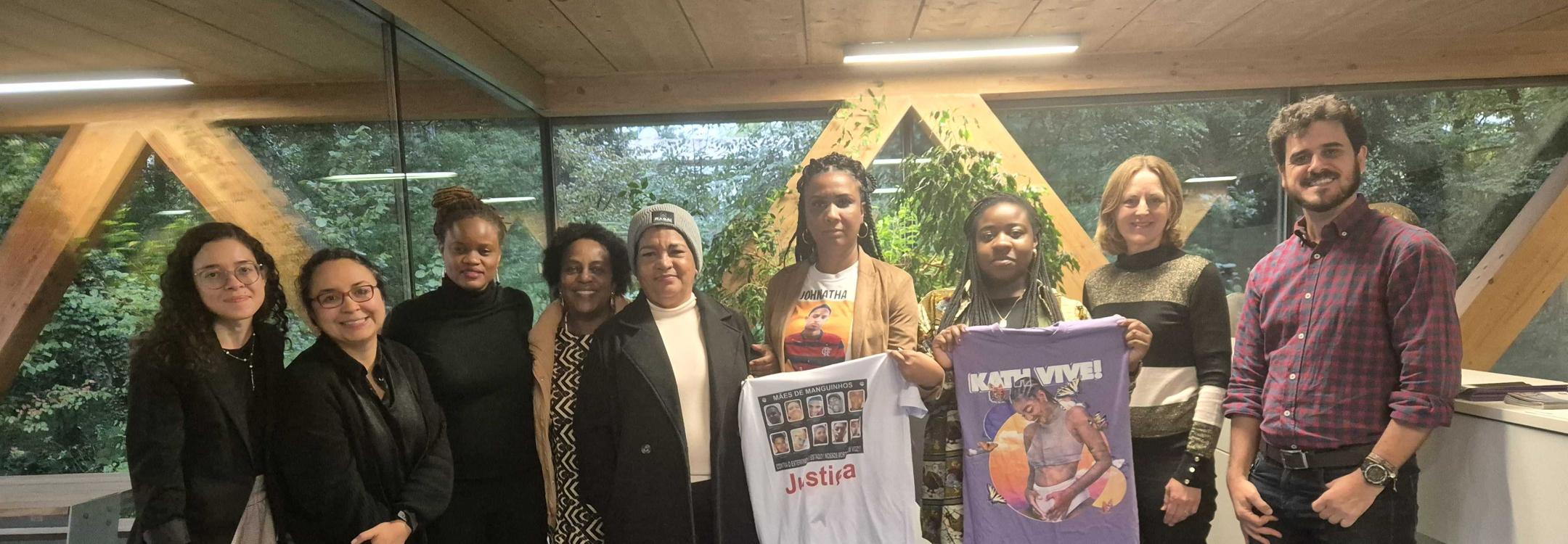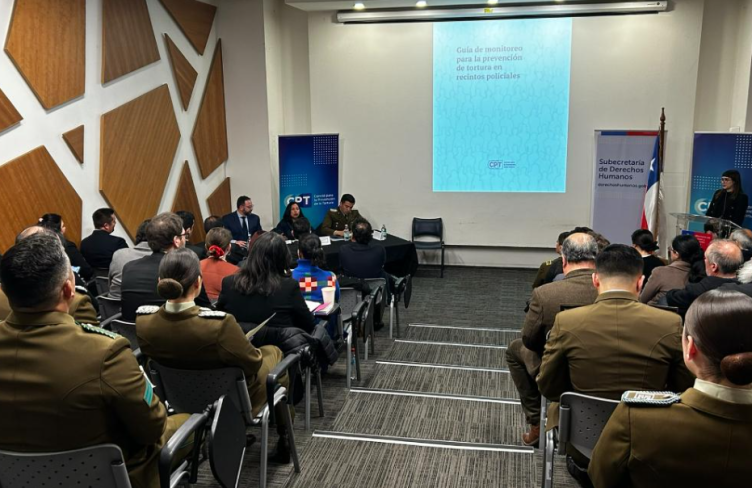
Ana Paula watched her child, Johnatha, who was 19, leaving to bring a dessert to his grandmother – he was murdered right after by a police officer in Manguinhos, Rio de Janeiro. Agatha Felix was 8 years old when she got into a kombi on her way home and was shot by a policeman at Complexo do Alemão, also in Rio. Heloysa Gabrielli was 6 years old when she was shot while playing at her grandmother’s house in Porto de Galinhas, Pernambuco.
This is part of a daily reality of Brazil: the fear of being killed or kidnapped by the institution that aims to guarantee the protection of every citizen. Since 2021, almost 19% of the youth killed in Brazil was by the police, and in 2023, 70.3% of these children were bellow eleven years old. Meanwhile, mothers whose children were victims of lethal police violence, such as the members of the group Mães de Manguinhos, have made their grief their fuel to fight against injustice. Mothers of young black boys, victims of police violence - along with their children - have been a leading voice in the country against racism in law enforcement agencies. For Rute Fiuza, who represented the movement Mães de Maio, fighting for justice is a way to continue being their children’s mothers.
I had the honor to meet with Mães de Manguinhos alongside colleagues from the Association for the Prevention of Torture and hear their personal stories and concerns on the lack of police accountability, which were later shared with the international community in a side event organised by the UN Anti-racism coalition (UNARC), of which APT is a member, in the framework of the 57th session of the Human Right Council. The UN discussed this issue through the recent findings of the Expert Mechanism to Advance Racial Justice and Equality in Law Enforcement (EMLER). The event followed an official visit carried out in December 2023, which resulted in an extensive report in which the body - created to analyse colonial and institutional roots of racist police violence - reviewed five states — listening to victims, civil society organisations, state agencies and visiting places of deprivation of liberty.
The report aligned with another one, presented by the OHCHR, on intersectionality, or the “intersecting forms of discrimination occur when a combination of two or more grounds interact with one another to produce distinct, unique and compounding experiences of discrimination”. Using this intersectional approach, EMLER presented how black persons experience violence in a higher degree, which may also be influenced by other factors, such as gender, sexual orientation, poverty – and age.
Brazil has inherited, along with its colonial history, a framework that resulted from systemic racism, mainly instrumentalised by the arms of the police. As noted by the report, the police as an institution lacks human rights-based training, with the use of force poorly regulated and motivated by racial biases. Law enforcement agents are reviewed by few oversight mechanisms, along with fragile investigative procedures, creating a scenario of impunity.
EMLER’s report on Brazil is a milestone, underlining the importance of human rights protection, and further development to explore new areas and recommendations is fundamental. For instance, this debate should continue in order to develop various aspects highlighted by the APT to EMLER, such as further exploring the link between racial discrimination and torture, reflecting on the implementation of the Mendez Principles as a tool for a more effective human rights compliant policing, and strengthening the prompt access to a judge as a preventive measure.
Just a few days before celebrating Brazil´s national children day, having had the privilege to meet and hear the personal accounts of Ana Paula Oliveira, Rute Fiuza as people directly affected by violence perpetrated by the State, was paradoxical. Listening on national news about how Law has evolved to protect children, guaranteeing their rights to health, education, leisure, and seeing so many of them being celebrated by their families and society, getting sweets and gifts – while others only dream of being able to grow up, without ending in the hands of the police.
It is common to ask kids what they want to be when they grow up: a doctor, a football player, an astronaut maybe. This text is about all of those that didn’t get to choose. As this text is written, other children continue to be deprived from its most basic right: the right to life It is not only necessary, but urgent, to develop this work, to genuinely address racism in Brazilian Law Enforcement institutions. This work must be made in the name of peace, but also of Johnatha, Joao Pedro, Ágatha, whose families bare the weight of grief, Davi, whose mother still waits at the door for him to come back from its kidnapping, and many others, which, are not statistics, but persons, as this is not simply a blog post, but a call for immediate action.
*This blog contribution is by Helena Szczupak, a research associate for the Association for the Prevention of Torture. She graduated with an LLM degree from the Geneva Academy in 2024 and has been working on counterposing institutional violence in Latin America, the Middle East and Europe.


